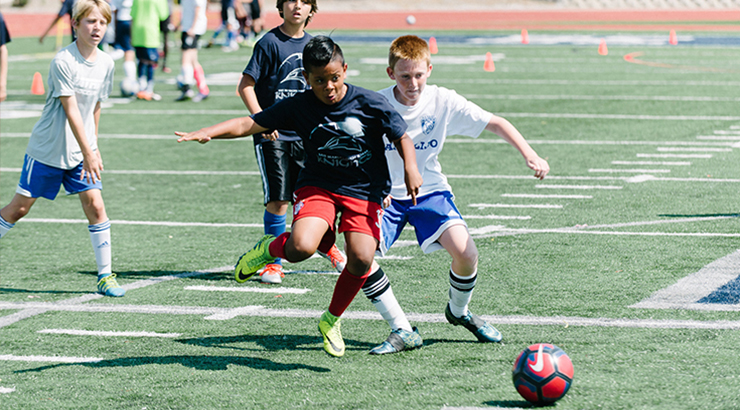Tips For Tryout Preparation With Coach Daniel McKell
A new feature by Carina Sammartino
SoccerToday Interview with Daniel McKell — a former pro and college soccer player, San Marcos High School Girls Varsity Coach, LA Galaxy San Diego coach, and owner of 360 Soccer and TheRealCoachDaniel.com.
The USA is a huge country and there are many levels of competitive soccer. Here is great information for soccer parents –information on how to help their youth soccer player prepare for youth soccer club tryouts.
Youth Soccer News: It’s that dreaded time of year again … soccer tryouts. For some players, this could be the time they hope to shine and make that higher team. Other youth soccer players could just be trying to make ANY team.
Regardless of which group your player is in, it’s important to know there is in fact a process to preparing for tryouts; it’s about knowing how to be your best to get the attention of coaches. Think of it like a job interview – you could “wing it,” or you could be prepared by knowing what questions you might be asked, how best to show off your skills, and what your future employer (club/coach) is looking for.
Sammartino spoke with Daniel McKell, elite youth soccer coach and former professional and college player, about what players and parents should do to prepare for tryouts. Having been through the tryout process dozens of times, as both a player and a coach, McKell says there is specific prep work to be done, by both parents and players.
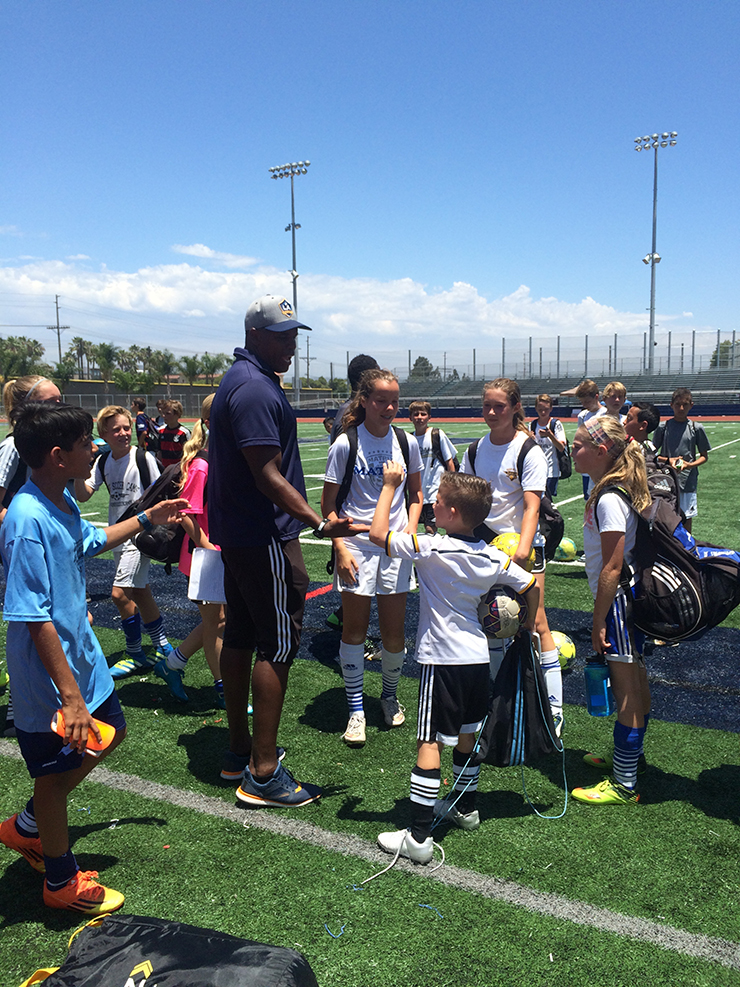
Carina Sammartino: How and when should you start to prepare for tryouts?
Daniel McKell: Players — and soccer parents — should start to prepare for tryouts at least 4-6 weeks ahead of time. Here are some things you should be doing to prepare:
- Do a little investigation work to find out your kid’s goals, ambitions, and desires. Does she want to maintain her position on her current team? Or does he want to make a higher team, even if that means possibly playing a different position?
- Find out the style of the different coaches in your kid’s age bracket. For example, do they like a lot of short passes? Big tackles? Fitness? Technical skills? Whatever it is, practice it.
- Try to find out the format of the tryout — is the tryout going to involve 1v1 or small sided games? What ever the format, make sure you practice it.
- If your goal is to make a higher team within your club, try to get an opportunity to train with the coach before tryouts, if possible. Ask your club director, or send an email or call the team coach. You want your kid to see first-hand what the next level is like.
- If you’re trying out at a new club, contact that club’s head of player development, or a couple coaches directly, and see if they will let you come to one of their practices. You can always go watch, even if your play can’t practice with the team.
It’s critical to get an early jump on visibility. There are just too many kids at a tryout for coaches to notice every kid. For example, I have three teams plus all my high school teams – that means I’m looking at 500+ kids during tryouts.
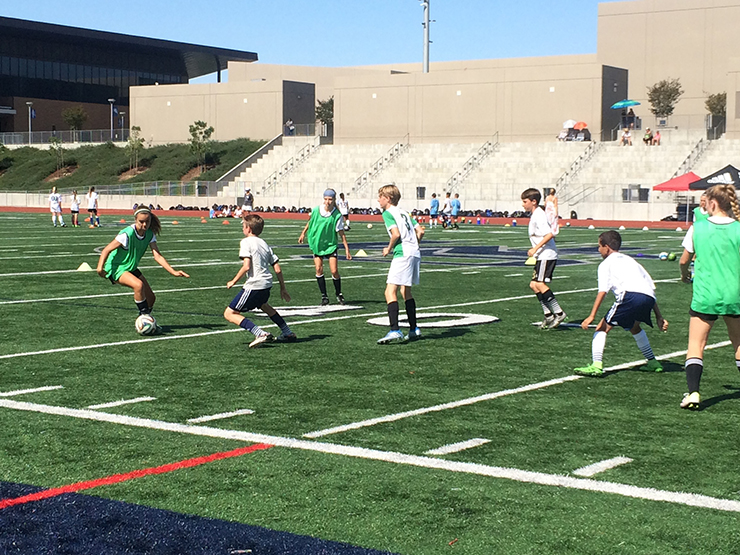
Carina Sammartino: How do you choose the best club for your family?
Daniel McKell: Try to discover the youth soccer club’s culture. Are they a short passing club or a long-ball club? A win-at-all-costs club or more focused on developing players? What is the style of coaching?
Every club has positives and negatives, and you want to find one that best suits your kid’s personality and aspirations now and/or in the future.
More so than the club, it is important that a family chooses a youth soccer coach, first and foremost.
You want a coach with a good reputation, good moral base, good training habits — someone that you believe can push your kid to the next level. Most importantly, you want a coach who will foster a happy environment.
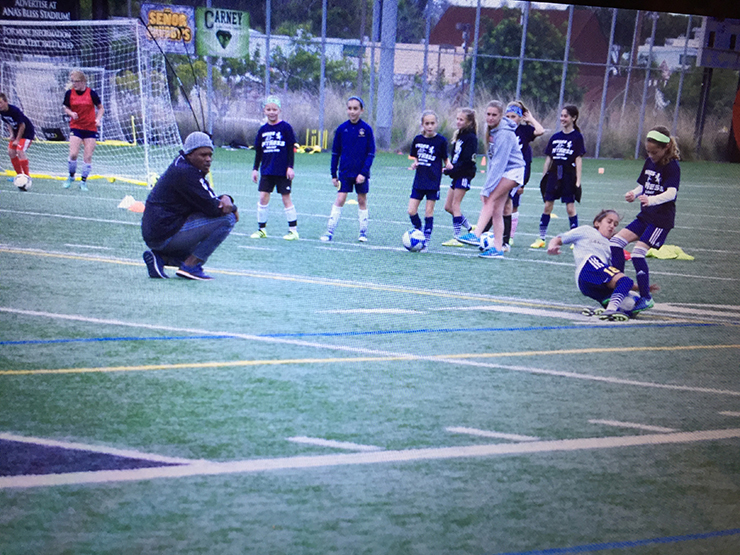
Carina Sammartino: What do you think is the most common mistake people make when choosing a club?
Daniel McKell: Too often people choose based on reputation, status, and social pressures. When your kid is very young, it can be okay to pick a club based on friends, but at some point, you need to pick based on your kid’s goals and needs.
Carina Sammartino: What do you think about the parents/players who pick a club based on the level of the team their kid makes? For example, a kid might make the top team at a smaller club, but the second or third team at a larger club, so they choose the smaller club. Is there any validity to this decision?
Daniel McKell: Look at the kid’s age and personality – it might be worth it to be on the first team somewhere else for a year or two to develop confidence, that’s okay. You must decide what they need to develop and get better.
Some clubs reward more technical ability, while others want size and physical strength. Again, it goes back to the right coach and the right environment for your kid.
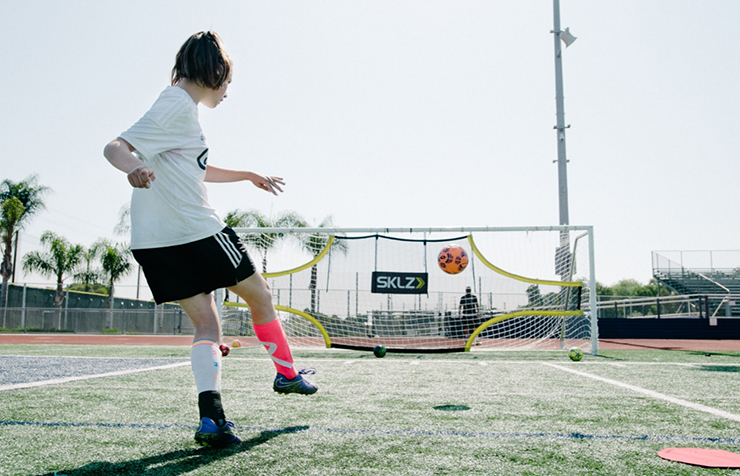
Carina Sammartino: What are some specific training tips to prepare for tryouts?
Daniel McKell: In addition to getting your kid ready mentally, he/she needs to be in tip-top physical shape. There are five key areas you need to focus on:
- Fitness & Agility. Fitness is a critical part of soccer. During a tryout, you want a coach to see you as much as possible. When a player is tired by day 3, they start hiding from the ball, their touches are off, and their head is hanging.
- Dribbling. Dribbling is the foundation of the sport; it shows confidence and comfort with the ball. Work to better develop your dribbling skills.
- Shooting. Remember the objective of the game is to score! Practice shooting on the run, on the goal, one-touch shooting, etc.
- Passing. Improve your passing ability with both feet, the ability to pass and run, pass on the move, accurate passes, etc.
- Be Aggressive. There is aggression on the ball and off the ball. Aggression on the ball means using your shoulder, hard tackles, physical space. Aggression off the ball means moving into space, being open and available, dribbling forward positively into space, not being afraid of taking one-on-one challenges, calling for the ball.
Carina Sammartino: What do coaches look for most during tryouts?
Daniel McKell:
Here are the 4 things to keep in mind:
- A hard worker, a player that never gives up.
- A positive attitude, good communication with other players, a “team” mentality. I don’t need a cheerleader, but when a player is supportive of their teammates, they can be a real asset to my team.
- Confidence. It’s okay to try things and make mistakes – it shows you have the confidence to try. But you also must show that you can recover from mistakes quickly.
- Be Ready. Look ready to play, ready to receive, ready for your moment. Be ready to show off what you do best, whether it’s tackling, shooting, dribbling, speed, etc.
Carina Sammartino: What are some tips for the day before and day of tryouts?
Daniel McKell:
Several days before, your kid should start getting into a good routine of eating properly, healthy hydration, and getting enough sleep. We are creatures of habit – even knowing the time of tryouts and building your practice schedule around that time will help your body and mind form a habit of performing at that hour.

The night before, eat healthy carbs, hydrate, get good sleep. Start to envision what you want to do on the field the next day. Dream about what you want to do.
The day of tryouts, do whatever routine helps you get the right mindset – listen to music, laugh with friends/family, juggle the ball, sit quietly, whatever works for you.
Wear something you feel confident in – your favorite jersey, a lucky headband or cleats — NOT CLEATS THAT AREN’T BROKEN IN.
Here are 5 more important tips for success at youth soccer tryouts:
- Arrive at least 20 minutes early to mentally relax and focus.
- Just before tryouts start, go up to every coach and try to say hi, or introduce yourself. Most kids don’t do that, so it stands out and shows confidence. Plus, it breaks that barrier of coach over player.
- During the tryout, maintain a very high work rate. Never stop moving, never stop communicating, never stop working. Accept that you’re going to make mistakes — miss a ball, make a bad pass — just remember what’s most important is what you do right after. How do you act when you’re losing? Do you fight or do you give up?
- Always be ready for that big moment. For an attacking player, it could be that glorious goal. You could lose the ball 8 out of 10 times, but those moments can show who you really are.
- Be prepared and positive if you have to play a position unfamiliar to you. Often kids shut down. Try to play where you are best – hold your ground, unless a coach tells you to move to a different position. Be assertive to keep your position, but if a coach puts you somewhere else, be flexible and show you can still play to the best of your ability.
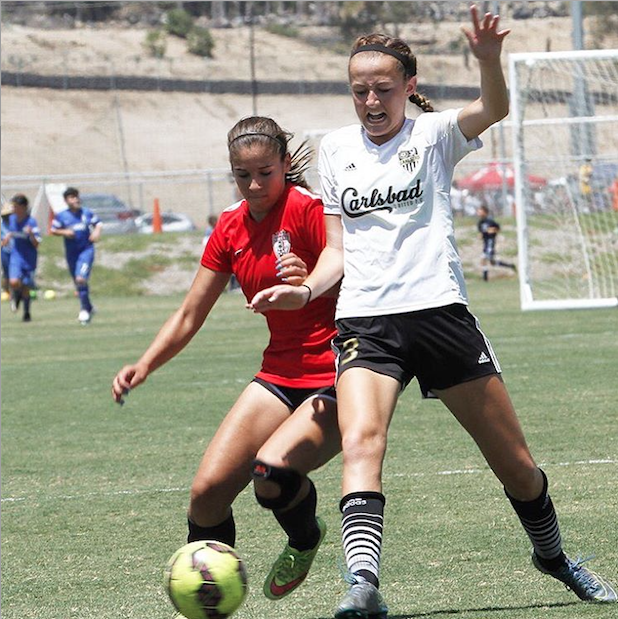
Carina Sammartino: Any tips for afterward?
Daniel McKell:
- Congratulate/compliment other players and thank the coaches.
- Eat well, hydrate, and restore. You have another day of tryouts ahead!
There’s something to be said for the feeling of “leaving it all on the field;” if you gave it your all, you should feel good and ready to accept whatever decision comes to pass. Don’t sit around and wait for “the phone call” – distract yourself and feel confident in your performance.
Carina Sammartino: Can you give us some insight into a coach’s perspective on the tryout process in general?
Daniel McKell: It’s an imperfect process and mistakes will be made, but it is what it is. Some kids may be overlooked, and some just don’t tryout well. Hopefully, they get better at this process over time.
As a parent, it’s your duty to get your kids prepared and ready to move out of the grey areas.
Best of luck and see you on the fields!

Carina Sammartino is an editor-at-large for Goal Nation.
When she’s not investigating the world of soccer and youth sports, she’s busy running a national PR agency, reading about human behavior, leadership and performance, and of course, shuttling kids to school, practices, and competitions.
RELATED ARTICLE: 7 THINGS EVERY SOCCER PARENT SHOULD KNOW

